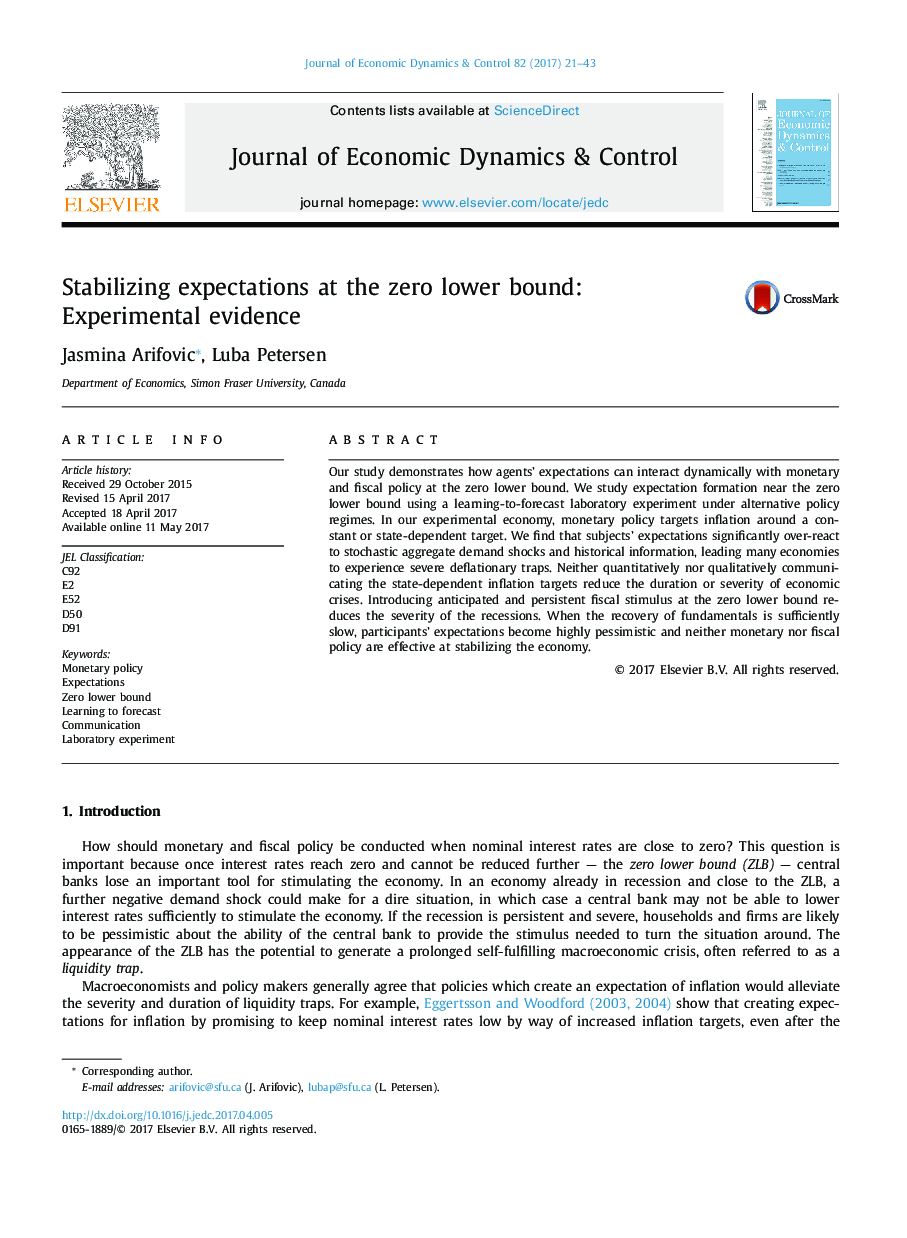| Article ID | Journal | Published Year | Pages | File Type |
|---|---|---|---|---|
| 5097972 | Journal of Economic Dynamics and Control | 2017 | 23 Pages |
Abstract
Our study demonstrates how agents' expectations can interact dynamically with monetary and fiscal policy at the zero lower bound. We study expectation formation near the zero lower bound using a learning-to-forecast laboratory experiment under alternative policy regimes. In our experimental economy, monetary policy targets inflation around a constant or state-dependent target. We find that subjects' expectations significantly over-react to stochastic aggregate demand shocks and historical information, leading many economies to experience severe deflationary traps. Neither quantitatively nor qualitatively communicating the state-dependent inflation targets reduce the duration or severity of economic crises. Introducing anticipated and persistent fiscal stimulus at the zero lower bound reduces the severity of the recessions. When the recovery of fundamentals is sufficiently slow, participants' expectations become highly pessimistic and neither monetary nor fiscal policy are effective at stabilizing the economy.
Related Topics
Physical Sciences and Engineering
Mathematics
Control and Optimization
Authors
Jasmina Arifovic, Luba Petersen,
